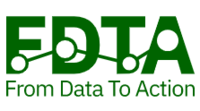Tools and methods
The ELD Initiative develops and provides tools, methods, and approaches for the values of land to inform decision making.
The ELD Initaitive has developed its internationally recognized "6+1 Step Approach" to assess the values of land and applied it in the last 10 years in more than 30 ELD country study processes. In addition, ELD develops relevant tools, methods, and approaches.
LUP4LDN tool: The Land Use Planning for Land Degradation Neutrality tool
What the tool does:
LUP4LDN (Land Use Planning for Land Degradation Neutrality) is a digital interface which integrates LDN into a participatory land use planning approach, allowing for a transparent and well-informed evaluation of land use and land management transition scenarios. As a software analytics tool, it supports policy-makers, land use planners, land users, national and sub-national organisations and research agencies in understanding optimal and feasible SLM interventions for LDN, alongside crucial areas to focus land restoration efforts.
The platform comprehensively interlinks existing tools such as the Global Geo-Informatics Options by Context (GeOC), the World Overview of Conservation Approaches and Technologies (WOCAT) SLM database, Trends.Earth and the Economics of Land Degradation (ELD) knowledge hub, including geo-spatial data on land cover, soil organic carbon, socio-ecological indices, and ecosystem services. It further allows users to see both visual and quantitative representations of LD gains and losses.
Project partners:
LUP4LDN won an international technology innovation competition of the Group on Earth Observation Land Degradation Neutrality (GEO-LDN) Initiative and was awarded with respective funding. The tool was developed by a consortium of ELD Initiative, SCiO, the University of Sassari, ICARDA, and WOCAT.
DAESim model: Integrating natural capital at farm level
What the models does:
The dynamic agro-ecosystem simulation model (DAESim) aims to improve the resilience of agriculture through understanding the impacts of land management on farms by taking into account key natural components such as climate, soil, carbon, water, nitrogen, phosphorus, microorganisms, soil erosion, crops, livestock, and plants. The model can inform and guide investment decisions by financial institutions, insurance companies, farmers, and governmental agencies. The demand for such knowledge is on the rise with accelerating threats and risks to sustainable food production due to climate change, population growth, depletion of natural capital, and global market instability.
The model was initially calibrated for the Australian context and is now calibrated for India to account for varying agriculture practices and conditions in different regions. In India, most agricultural land is rain-fed, and the average farm size is smaller, which makes the Indian scenarios quite distinct from the Australian one.
Project partners:
The DAESim model is developed by the Australian National University and the University of Sydney in collaboration with other institutions. For the India calibration they join forces with the Sanjeevani Institute for Empowerment & Development. The tool is developed with co-funding from the ELD Initiative.
Scenarios for Integrated Land Use Planning (S4ILUP) process
What the workshop series is about:
The workshop series on Scenarios for Integrated Land Use Planning (S4ILUP) originates from the aspiration to combine widely fragmented databases and utilize tools to facilitate evidence-based decision making in support of SDG 15 “Life on Land”. By inviting interested stakeholders, S4ILUP lays the groundwork for a participative, multidisciplinary approach to land use planning.
The focus of the workshop series is put on harnessing the potential of vast quantities of data to target the global challenge of implementing sustainable land management (SLM) by taking the variety of political settings and individual landscapes into account. Finally, land use planners and decision makers can equip themselves with a simplified and integrated access to the data needed for evidence-based, nature-positive, and future-proof land use planning.
Project partners:
The ELD Initiative is organizing partner for the S4ILUP process with WOCAT, the GEO-LDN Initiative, FAO, and UNCCD.
Links


